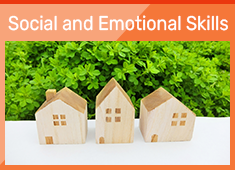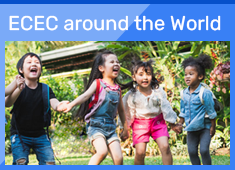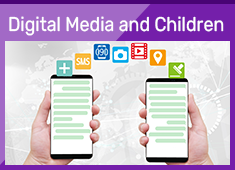Research Around the World: Japan
This week's focus is on the CHILD RESEARCH NET. First, however, the very name and the attractive logo of the website have caught my attention. The organization lives by the motto: "Children are our future," which was coined by the founder, Dr Noboru Kobayashi.
The motto reminds me of the famous song performed by the late Witney Houston.
Here are some of the main current international research topics of focus for CRN
Furthermore, here are some additional topics that are of interest to CRN
- Health and Medical Issues
- Childrearing
- Education and Learning
- Caring for Children after a Natural Disaster
Here are some insights about early childhood that I gained from exploring this international early childhood website: From the article, "Research on Home Education from Early Childhood to First Grade of Elementary School" (Longitudinal Survey):
Global Trend in Early Childhood Education
Our social environment is rapidly changing internationally at an accelerating pace through globalization in the economy and informatization using IT. No longer sufficient to simply master conventional knowledge, it is also considered necessary for us to acquire attitudes and capabilities to flexibly adapt to our environments, continue to learn, and solve problems. Attention is also turning toward the importance of acquiring such attitudes and capabilities in early childhood for future individual development.
The transition from Early Childhood to Elementary School in Japan
Children cultivate the basics of learning during the period from early childhood to elementary school. To ensure that preschool education and care and elementary education provide a smooth transition in line with children’s development, kindergartens, day-care centres, Early Childhood Education and Care centres (ECEC centres: nintei kodomo en), etc., and elementary schools have begun implementing transitional curricula.
A Demand for Evidence-Based on Data
Much research is conducted on activities and involvement with day-care centres/kindergartens and the home in Japan concerning learning processes in early childhood and environments that encourage learning. Moreover, nowadays, it is required to build up evidence-based data collection and analysis.
The Director, Dr Yoichi Sakakihara, has a Blog where he writes on topics related to children, his views and his daily activities. some of the topical issues are:
- Regarding the COVID-19 Vaccine (2) (2021.05.14)
- Something's Strange: Education in Japan (2) Bullying by Teachers Doesn't Exist? (2021.05.07)
- Regarding the COVID-19 Vaccine (1) (2021.04.16)
- Something's Strange: Treatment of Developmental Disorders in Japan (7) Excessive Intelligence Testing (1) (2021.04.09)
- Thoughts on Developmental Disorders (2) In Just One Word! (2021.04.02)
- Something's Strange: Inclusive Education in Japan (7) What the Teachers Really Think that I Didn't Want to Hear (2021.01.22)
- Resilient Children (2021.01.08)
- The Safety of a Vaccine (2020.12.25)
- Childcare Facilities Can't Avoid the Three Cs (2020.12.11)
- Thoughts on Development Disorders (1) Is Suppressing Childlike Behavior the Right Treatment? (2020.09.25)
Reference
https://www.childresearch.net/data/ec/2016_01.html
https://www.childresearch.net/data/pdf/home_education_2016.pdf





Wow! What a great review of the Child Research Net. What was your favorite resource or section of resources on this website? I personally found the social and emotional section interesting.
ReplyDelete